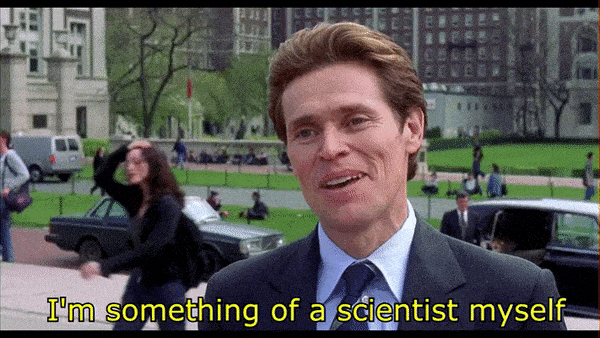- The Reframe Newsletter
- Posts
- 🧠⚡ Thinking About Thinking (pt 2)
🧠⚡ Thinking About Thinking (pt 2)
Learning How to Learn
Thinking About Thinking (pt 2)
Estimated reading ⌛️ time - 12 minutes
Hello Reframers!
In our last issue, we explored the profound insights of Daniel Kahneman, Barbara Oakley, and Adam Robinson, unraveling the complexities of thinking and learning. We delved into Kahneman's exploration of our cognitive systems, Oakley's dance between focused and diffused thinking, and Robinson's emphasis on intuitive insights. These thinkers offered us a richer understanding of the mind's inner workings and practical strategies to enhance our cognitive processes.
Now, as we continue this intellectual journey (inspired by The Knowledge Project Ep. # 180), we'll dive into the wisdom of Tyler Cowen and Adam Grant. With his unique blend of economics and cultural anthropology, Cowen offers insights into developing sound judgment and navigating the vast sea of information in our digital age. Grant, an organizational psychologist, challenges us to rethink our preconceived notions and biases, advocating for a more adaptable and reflective mindset.
Join me as we unpack their perspectives and integrate their wisdom into our quest for a life of significance and fulfillment. Let's continue reframing our understanding and pushing the boundaries of our learning.
First, let me give you some background on the guests…
Tyler Cowen - an economist, academic, and writer. Cowen is a professor at George Mason University known for his blog Marginal Revolution, which focuses on economics, technology, and culture.
Adam Grant - renowned organizational psychologist, author, and professor at the Wharton School of the University of Pennsylvania, known for his research on workplace dynamics, leadership, and the psychology of success.
Let’s Jump In!
Tyler Cowen: A Brief Introduction
Tyler Cowen is more than an economist; he's a modern polymath (Greek: πολυμαθής, romanized: polymathēs, lit. 'having learned much'; Latin: homo universalis, lit. 'universal human'). As a professor at George Mason University and the co-author of the popular blog Marginal Revolution, he brings an eclectic mix of economic theory, global trends, and cultural insights.
I could go on and on about several of Tyler Cowen’s teachings and themes, but this newsletter will focus primarily on his interesting perspectives on learning.
Interdisciplinary Approach: Cowen is known for his interdisciplinary approach to economics, integrating insights from culture, politics, and technology. This breadth encourages a more holistic way of thinking and learning, urging individuals to draw connections across diverse fields for a deeper understanding of economic phenomena. I know this is a corporate phrase, but there’s nothing quite like “connecting the dots” from a spectrum of various topics.
Emphasis on Cultural Learning: Through books like "Creative Destruction" and his blog, Cowen advocates for the importance of cultural literacy and the arts in economic understanding. He believes that cultural consumption, including literature, music, and food, is crucial in fostering creativity and innovation, increasingly valuable skills in the modern economy.
If you are a history newbie like me, I’d recommend reading “Sapiens: A Brief History of Humankind” by Yuval Noah Harari. I just finished reading this book, and I’m somewhat at a loss for words for how incredible it is. It helps you understand today's society due to relevant cultural history from day 1… You have to read it. If you’ve ever wondered how the agricultural revolution affects your daily life or how there is no such thing as a country’s untainted, “true” culture, check out the book.
Economic and Technological Dynamism: In "Average is Over" and other writings, Cowen discusses the impact of technological advancements on the economy and labor market. He emphasizes the need for continuous learning and adaptation in response to rapid technological changes, highlighting the importance of developing skills that cannot be easily automated. He poses that this book is both about the past and the future, yet today's job markets reflect the dichotomy between computer skills and human-exclusive skills (people skills, sales, marketing, etc.). #AI
Marginal Thinking: Through his blog, Marginal Revolution, Cowen has popularized the concept of marginal thinking—evaluating decisions based on incremental changes rather than total outcomes. This approach to thinking and decision-making encourages focusing on the details that often matter most in complex economic and life decisions.
Information Processing: Cowen's work on how information is processed and disseminated in the digital age, as seen in "The Complacent Class" and his writings on information economics, contributes to our understanding of how we learn and make decisions. He explores how abundant information affects our ability to focus and sift through the noise, stressing the need for efficient information-filtering skills.
Tyler Cowen's contributions span beyond traditional economic theory, touching upon the ways we think, learn, and focus in an increasingly complex and information-saturated world. His work encourages a multidisciplinary approach to learning, the importance of adaptability, and the value of intellectual curiosity in navigating the challenges and opportunities of the 21st century.
Practical Takeaways
🥗 Embrace a Broad Learning Diet: Follow Cowen's approach by consuming diverse information sources. Read widely - from economics to literature, technology blogs to art reviews to newsletters 😉
💸 Economic Thinking in Daily Life: Try applying economic principles to your daily decisions. How does supply and demand affect your shopping habits? What does opportunity cost tell you about how you spend your time? (Don’t be the person who tells someone they haven’t bought a house yet because they go to Starbucks once a week ☹️)
🤔 Critical Analysis of Information: Practice evaluating the quality of information, especially in the digital age. Cowen suggests triangulating information from various sources and learning to separate fact from opinion.
Cowen's Memorable Quotes
"It's better to have a mind opened by wonder than one closed by belief."
"Economics is everywhere, and understanding economics can help you make better decisions and lead a happier life."
Adam Grant: Think Again
Finally, Adam Grant invites us to reassess our tightly held opinions, adopt the curiosity of a scientist, and nurture the flexibility to change our minds in the pursuit of truth and understanding. If we can have the confident humility to confront our cognitive laziness and test our own beliefs as theories, we will ultimately lead a more thoughtful, intentional, and fulfilling life.
Let’s take a look into some of the key concepts from his #1 New York Times Bestseller, “Think Again”.
Scientist as an Identity
Grant introduces the idea of thinking like scientists, where we view our opinions as hypotheses to be tested rather than truths to be defended. This approach encourages us to be open to new ideas, to be curious, and to embrace being wrong as an opportunity for learning and growth.
Grant contrasts the mental modes of preaching, prosecuting, and politicking with the scientific method. The former involves advocating, debating, or politicking, often with a closed mind, whereas the latter involves hypothesizing, experimenting, and revising beliefs based on evidence.
"The danger of preaching and prosecuting is that you don't change your mind... Thinking more like a scientist means your views are theories."
Forge your path with the torch of evidence-based thinking - Focus on learning instead of focusing on just being right.
In Grant’s book, “Think Again”, he explores the critical skill of rethinking (reframing): learning to question your opinions and open your mind to new ideas and perspectives.
Below are some key 🔑 takeaways from the book:
The Joy of Being Wrong: Grant suggests that being wrong is an opportunity for growth. Admitting error isn't a defeat; it's a chance to improve our understanding. I often find myself improving my understanding of the world 🙂
Rethinking vs. Confidence: He challenges the idea that confidence equals competence. Being open to rethinking strengthens our cognitive skills more than stubbornly sticking to our guns.
Intellectual Humility: Grant emphasizes the importance of intellectual humility - recognizing that our knowledge and understanding are limited or potentially biased and being open to learning from others.
Questioning and Curiosity: Encourages fostering a mindset of curiosity and a willingness to question established beliefs and norms.
Complexity of Changing Minds: The book acknowledges the complexity involved in changing minds, both our own and others. It requires patience, empathy, and effective communication.
Build a Culture of Learning: Organizations with a learning culture innovate more and make fewer mistakes. These types of organizations provide both psychological safety and accountability.
Avoid Binary Bias: When discussing complex issues, understand that there aren’t just “two” sides to an issue. Do not generate polarization.
My favorite quote about binary bias:
“There are two kinds of people: those who divide the world into two kinds of people, and those who don’t.”
This week's insights are just the tip of the iceberg - many books and materials can help you improve focus, attention, thinking, and learning. Our world is riddled with distractions, polarized viewpoints, and people stuck in their ways.
May you live a life of continuous growth, cultivate a culture of learning (at work, home, friends, etc.), and ABL (always be learning).
-In learning, your CLO (Chief Learning Officer) 🙂
If you feel like the Reframe Newsletter provides value to you every week, I would encourage you to share this with a family member, friend, or colleague.
It means a lot to us, and we track any referrals from our subscribers to reward you with free things in the future! (stay tuned)
The Content is for informational purposes only. You should not construe such information or other material as legal, tax, investment, financial, or other advice. Nothing in this newsletter constitutes a solicitation, recommendation, endorsement, or offer.

